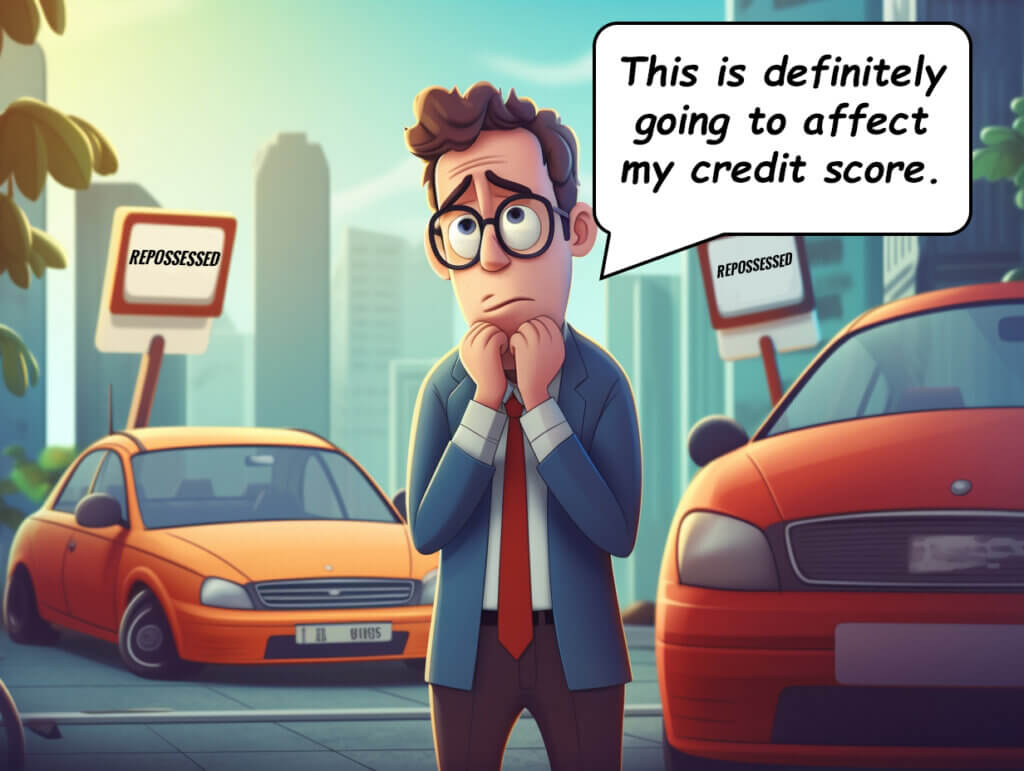- Blogs
- /
- How Long Does it Take to Get a Personal Loan? A Complete Breakdown
How Long Does it Take to Get a Personal Loan? A Complete Breakdown

Summary
Personal loans are a lump sum of money from banks or online lenders that borrowers pay back in installments over time. These loans are often used for emergencies like medical bills, urgent purchases, debt consolidation, and investments.
Personal loans have been an excellent lifeline for millions of folks in a sticky situation. However, few know how long they must wait to get a loan. This knowledge can be essential in planning and maintaining their peace of mind.
That’s why we’ll show you the process of getting a personal loan so you can finally answer the lifelong question: ‘How long does it take to get a personal loan?’
Key Takeaways
- Growing your credit score can improve your chances of getting fast approval.
- Online loan applications are processed much more quickly than traditional paper ones.
- Most online lenders can approve and fund your loan within a day, provided your application is verified and approved before 2:30 pm.
- Credit unions usually approve and fund accounts 1-7 days after an application.
- Traditional banks usually approve and fund loan applications 3-7 business days after an application.
- Most online lenders provide same-day loan approval.
- Having all the necessary documents ready before applying for a loan can speed up the approval process.
- Avoid high-risk loans like payday and car title loans.
How Long Does it Take to Get a Personal Loan
1. Applying with an Online Lender
A. Application Process
Online lenders typically have the best-streamlined loan application processes. And because these loan applications are completed entirely online, it significantly reduces the time it takes to apply compared to traditional lenders.
B. Approval Time
Besides completing your loan application online, online lenders also use algorithms and automated systems to assess loan applications.
Doing this results in getting same-day approval, which is far better compared to traditional banks’ long, manual review processes.
Online lenders will tell you instantly if your loan application was approved or declined.
C. Verification and Funding
Once you’ve submitted your application, the lender may need to verify the information you provided. They may request more documents like your proof of income or personal identification document.
Understand that the time it takes to verify this information varies depending on the lender and the complexity of your application.
That said, if your application gets approved and all your documents are verified, the lender will deposit the loan into your account. However, the time it takes to get the funds in your account depends on the lender’s policies and their method of disbursement.
And although most online lenders like Lightstream, SoFi, and Zable provide funding the day you get approved, several online lenders may deposit your funds between 24-72 hours after approval.
2. Applying with a Credit Union

A. Becoming a Member
Before applying for a loan with a credit union, you must apply for a membership. Now, the criteria for becoming a member varies based on the credit union’s policies, but they often involve location, employer affiliation, and social security number.
B. Application Process
Once you’re a member, you can begin the loan application process. Credit unions generally offer in-person and online application options.
The application process usually involves providing personal and financial information, like your income, employment details, and loan amount.
C. Approval Time
After submitting your loan application, the credit union will review your financial information, credit history, and membership status to determine your eligibility for the loan.
Depending on the credit union’s policies and workload, the approval decision may take a few hours to a few days.
D. Verification and Funding
If your application gets approved, the credit union may ask for additional documentation to verify the information on your application. This documentation can include your pay stubs, bank statements, or proof of residency.
After thoroughly verifying and approving your documents, the credit union will deposit the funds into your account.
Although a few credit unions like Alliant offer same-day funding, most credit unions take 3-5 business days to process and transfer the funds.
3. Applying with a Traditional Bank
A. Application Process
Applying for a personal loan at a bank involves providing personal and financial information, like your income, employment details, desired loan amount, and the purpose of the loan.
The time it takes to complete the application can vary depending on whether you apply in person or online and the complexity of the bank’s application.
B. Soft Credit Check and Approval
Once you submit your loan application, the bank will conduct a hard credit check to assess your creditworthiness. Your credit score is a simple metric that allows lenders to gauge how likely you would repay a loan.
Lenders pay close attention to your credit score, income, and employment status. They pay special attention to your debt-to-income ratio, which shows how much of your monthly income is spent on setting debt.
That said, getting approved can take a few hours or days, depending on the bank’s policies and workload.
C. Verification and Underwriting
If your loan application gets approved, the bank will ask for additional documents to verify the information you provided in the application. They’d ask for your pay stubs, bank statements, tax returns, or proof of identity.
After all your documents have been submitted and verified, the bank’s underwriting team will review your application and documents to make a final approval decision.
This process may involve additional checks and verifications to ensure compliance with the bank’s lending policies and regulatory requirements. The time this stage takes depends on the complexity of your application and the bank’s internal lending processes.
D. Funding
Once your loan is fully approved, the bank will disburse the funds to your chosen account. Although funding times vary for each bank, it’s worth noting that some banks offer same-day funding for personal loans, but a majority, like Citibank, sends out the check between 3-7 business days.
Six Things You Need to Obtain a Loan

1. Get Your Documents Organized
Before applying for a loan, gather all necessary documents, including your proof of income, identification, bank statements, and any other required paperwork.
Getting everything organized and readily available will streamline the application process and prevent delays.
2. Improve Your Credit Score
One thing you mustn’t ignore when applying for a loan is your credit score. A higher credit score can increase your chances of loan approval and may lead to better loan terms like lower interest rates and fees.
Ensure you improve your credit score before applying for a loan. You can do that by paying down existing debt, making on-time payments, and addressing any errors on your credit report.
However, if fixing your credit score is too challenging, you should consider getting help from a trusted credit repair company.
3. Research Lenders and Loan Options
Before picking any lender for your loan, research different lenders and loan options to find the best fit for your financial situation. Look for lenders known for their quick approval process and flexible eligibility criteria.
Also, consider prequalifying for loans with multiple lenders to compare offers without impacting your credit score. By researching upfront, you can select the lender and loan product that best meets your needs and expedite the application process.
4. Complete Your Application Accurately
Take the time to fill out the loan application completely and accurately. Providing incomplete or incorrect information can lead to delays or even rejection of your application. Double-check all fields before submitting to ensure accuracy and completeness.
5. Use Online Applications
Many lenders offer online loan applications, which are processed more quickly than traditional paper applications. Online applications allow you to submit your information electronically and receive a response faster.
Also, online lenders have streamlined processes and automated underwriting systems that can hasten your approval process.
6. Maintain Regular Communications with Your Lender
Always stay in touch with your lender throughout the application process. So you can respond quickly if they request additional information or documentation.
Regular communication can help you quickly resolve any issues or questions, ensuring that your application moves forward without unnecessary delays. Not to mention that it shows your lender you’re committed and proactive, which can positively influence their decision-making process.
How to Get Your Personal Loan Approved Quick

Complete and Accurate Documentation
Ensure all your paperwork is in order before applying for a personal loan. Having all the necessary documents ready can speed up the approval process. This includes proof of income, identification, and any other required information.
Having complete and accurate documentation ensures that your application is processed smoothly. Missing or incorrect documents can delay getting approved for a personal loan. Organizing your paperwork beforehand increases your chances of a quick approval.
Improve Your Credit Score
Paying bills on time and reducing outstanding debts can help boost your credit score. A higher credit score indicates to lenders that you are reliable with repayments.
And that’d increase the likelihood you’ll get a quick loan approval. Monitoring your credit report regularly allows you to identify areas for improvement.
Always remember that a good credit score improves your chances of getting approved and helps secure lower interest rates on loans.
Many applicants get turned down for a loan because lenders decide their creditworthiness makes them high-risk borrowers.
That said, the best way to grow your credit score before applying for a personal loan is to get help from a trusted credit repair company.
3 Better Alternatives to Getting a Personal Loan
Use Your Credit Card
If you need money quickly, credit cards or lines of credit can be good alternatives to a personal loan. With credit cards, you can make purchases up to a specific limit set by the issuer. Lines of credit work similarly but usually have lower interest rates than credit cards. Consider these options if you need money urgently, but do not max out your credit limit.
Consider Home Equity Loans
Another excellent alternative to securing a loan is using your property through home equity loans. If you own a home, this type of loan allows you to borrow against the equity in your property at a low-interest rate.
You should only use this option for larger expenses like home renovations or emergency medical bills. Remember, using your home as collateral means you risk losing it if you can’t repay the loan.
Borrow From Your Friends and Family
Turning to friends or family members for help during an emergency is one of the best options for getting a personal loan. Borrowing from your family and friends doesn’t involve traditional lenders and could offer extra flexibility when setting up repayment terms.
One more thing. Only borrow from those you trust and ensure clear communication between you and the lender.
3 ‘Fast’ Loans You Must Avoid

1. Payday Loans
Payday loans are quick but can be costly. They have high-interest rates and fees, making them an expensive option. These loans seem like a good solution for urgent needs, but they can trap you in a cycle of debt if not managed carefully.
On the surface, the quick cash from payday loans may seem incredible, but they come with an Annual Percentage Rate of over 400%. APR measures the interest rate and additional fees charged on a loan.
If you’d taken a $1,000 payday loan for 31 days, you’d have to repay $1,328. And yes, this could throw you into an endless debt cycle.
Don’t get fooled by the immediate relief Payday loans may offer because their long-term financial consequences is much worse than the short-term benefits.
2. Car Title Loans
Car title loans provide fast money by using your vehicle as collateral. But, once you fail to repay on time, the lender could repossess your car as collateral.
Many folks get car title loans because these loans offer quick access to funds without extensive credit checks. But from our experience, losing your vehicle makes it a risky choice because it could complicate several areas of your life, from your job to something as simple as getting groceries.
3. Cash Advance from Credit Cards
Getting cash advances from credit cards allows you to borrow money quickly. However, these advances come with significant drawbacks, like high-interest rates. Also, relying on a cash advance loan can impact your credit score by increasing your credit utilization ratio.
Here’s How Personal Loans Affect Your Credit Score
Positive Effects on Credit Scores
Taking out a personal loan can help build your credit score if you make timely payments and handle the loan responsibly. Making timely payments demonstrates to creditors that you are reliable and can manage debt effectively. This positive payment history reflects well on your credit report.
Maintaining a balance between available credit and debt is crucial for a healthy credit score. When you have different types of credit, such as a mix of installment loans like personal loans and revolving credit like credit cards, it shows lenders that you can handle various forms of borrowing responsibly. This diversity in your credit profile can boost your credit score over time.
Negative Effects on Credit Score
Failing to make payments or defaulting on a personal loan can severely affect your credit score. First, late payments will be reported to the credit bureaus, damaging your payment history and lowering your overall credit rating.
Defaulting on the loan significantly impacts your current financial situation and makes it challenging to secure future loans due to the negative mark left on your credit report.
Having too much debt relative to available credit can harm your credit score, even if you make regular payments toward all obligations.
That’s why it’s essential to keep an eye on this ratio since high debt levels may signal financial distress to potential lenders, affecting their willingness to extend further credit.
Follow the Rules
Now that you’ve gotten a solid idea of approval timeframes, requirements, and factors that sway the decision, you must remember that quick approvals often hinge on promptly meeting the demands of your lender and keeping your credit score in excellent shape.
So, as you gear up to dive into the world of personal loans, stay sharp on those requirements, follow the rules, be proactive in managing your credit score, and explore all options before picking the best one.
FAQs
How long does it take to get a personal loan?
Getting approval for a personal loan can vary but usually takes 1 to 7 business days. Factors like the lender’s process, creditworthiness, and documentation completeness play a role in determining the timeline.
What are the common requirements for obtaining a personal loan?
Some common requirements for getting a personal loan include proof of income, personal identification documents, a credit history check, and sometimes collateral, depending on the type of personal loan you’re applying for.
Are there any tips to ensure quick approval for a personal loan?
To expedite your application process, maintain good credit health, provide accurate information promptly when requested by the lender, and choose lenders that offer quick processing times.
Can taking out a personal loan impact my credit score?
Yes, taking out a personal loan can affect your credit score positively if you make timely payments. However, missing payments or defaulting on the loan can negatively affect your credit score.
Can special circumstances delay getting a personal loan?
Yes. Special circumstances like documentation errors, financial status changes during processing, or additional verification requirements can delay getting a personal loan. If this happens, ensure you address them quickly with your lender.
Our Latest Blogs:
FREE Strategy Session to Fix Your Credit Blogs / Facebook Twitter Linkedin Instagram Share Summary Did you know that...

ThisIsJohnWilliams

ThisIsJohnWilliams

ThisIsJohnWilliams
FREE Strategy Session to Fix Your Credit Blogs / Facebook Twitter Linkedin Instagram Share Summary Have you ever gone...

ThisIsJohnWilliams
FREE Strategy Session to Fix Your Credit Blogs / Facebook Twitter Linkedin Instagram Share Summary Discovering the keys to...

ThisIsJohnWilliams






